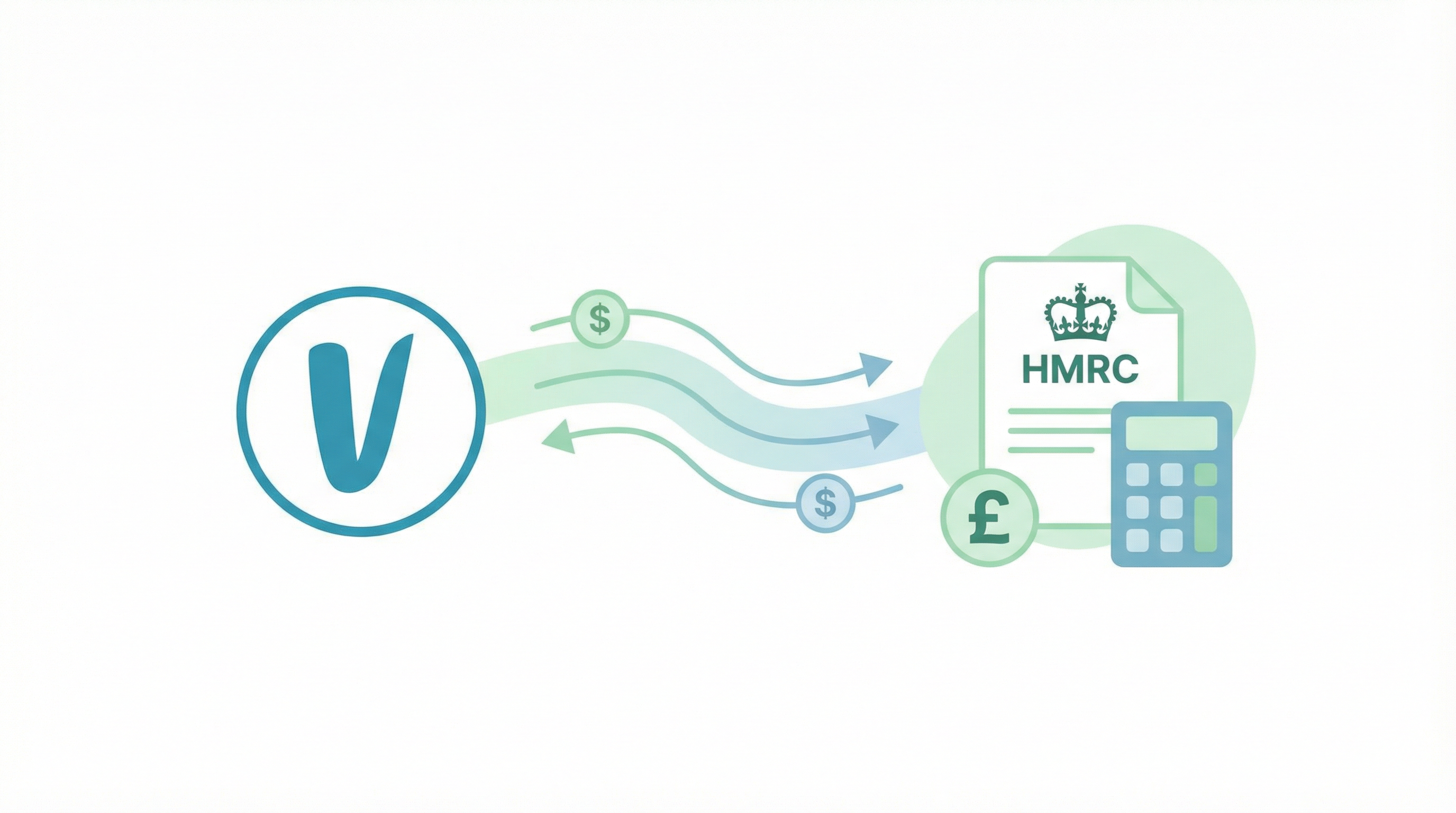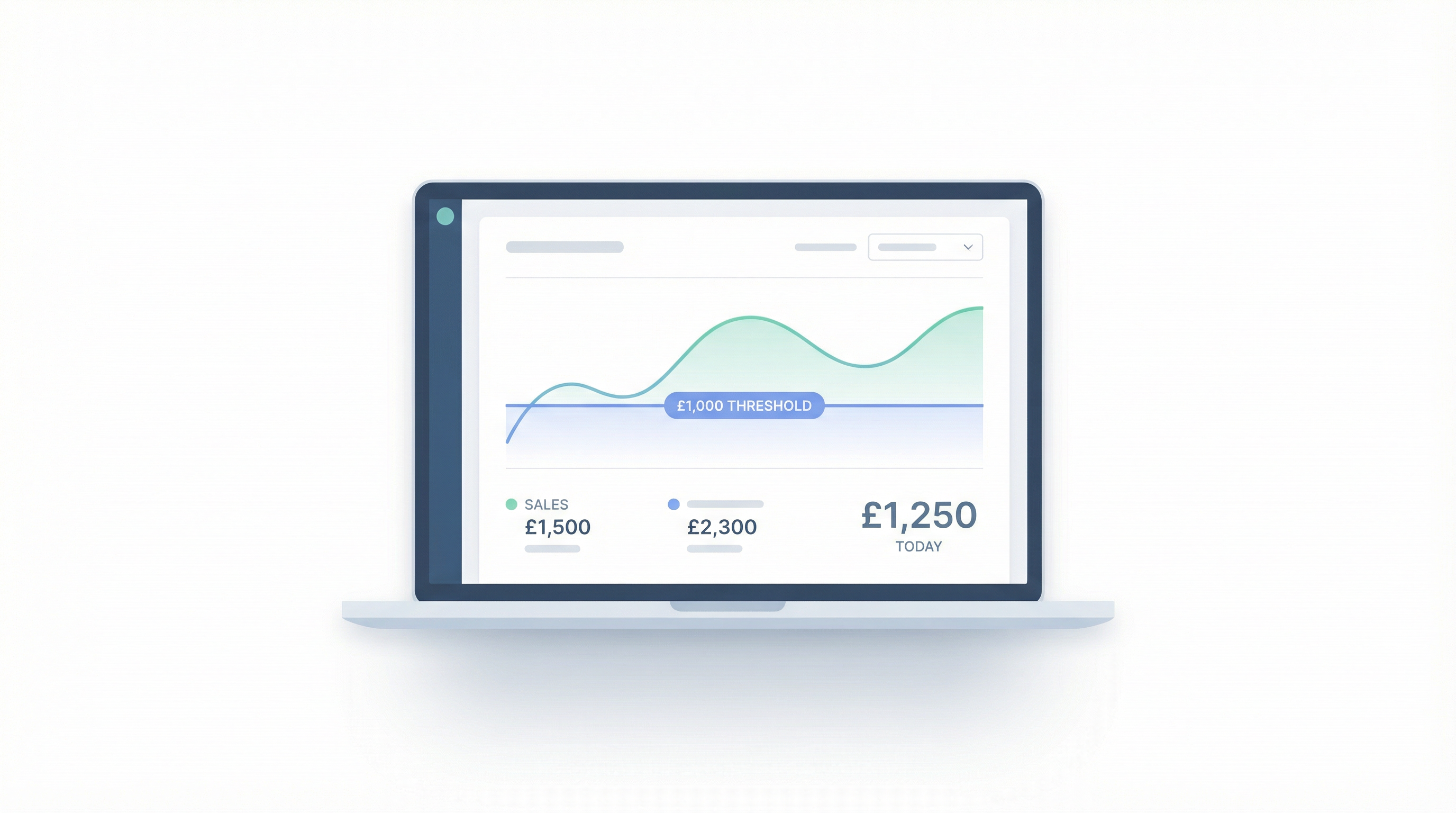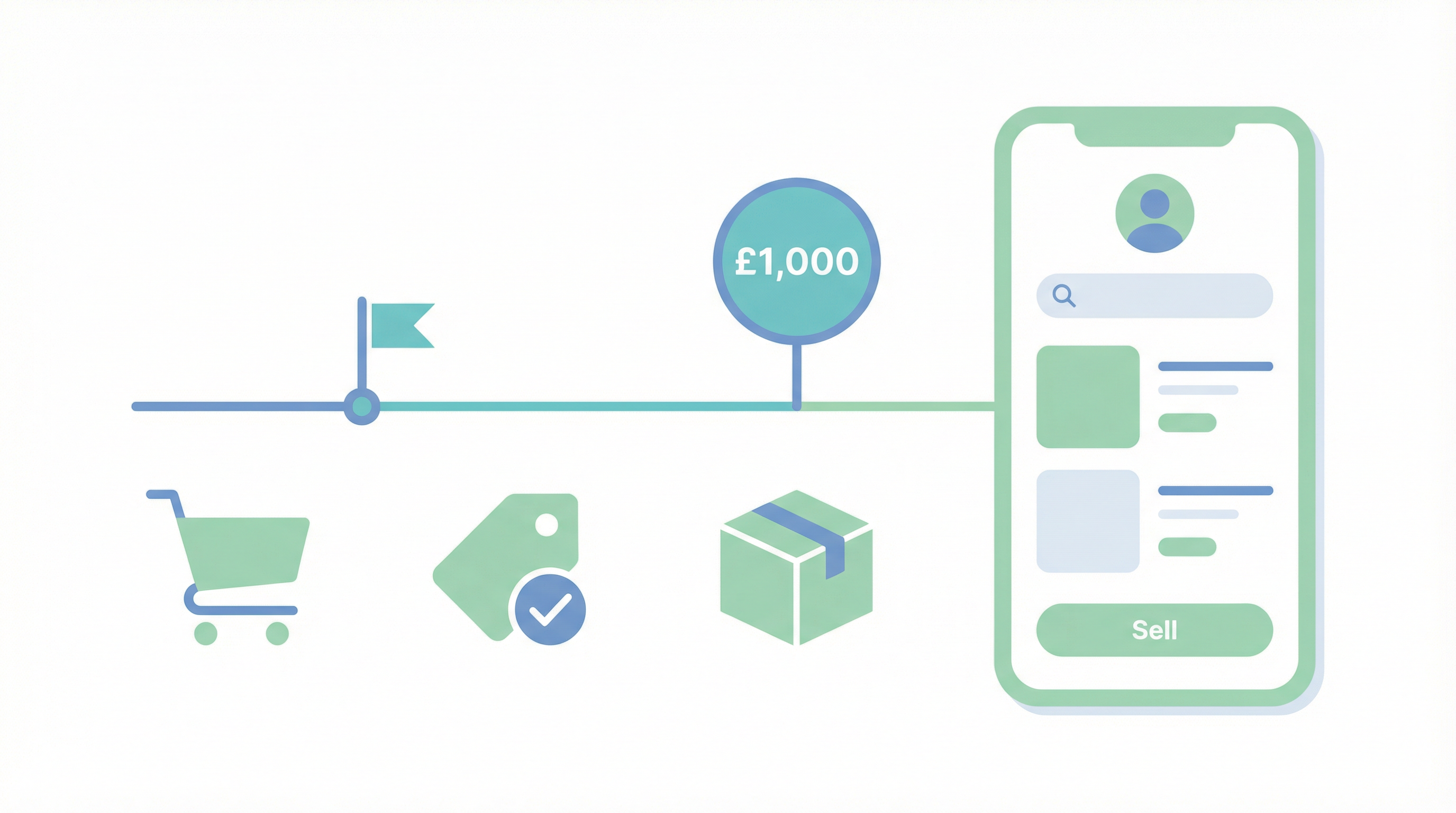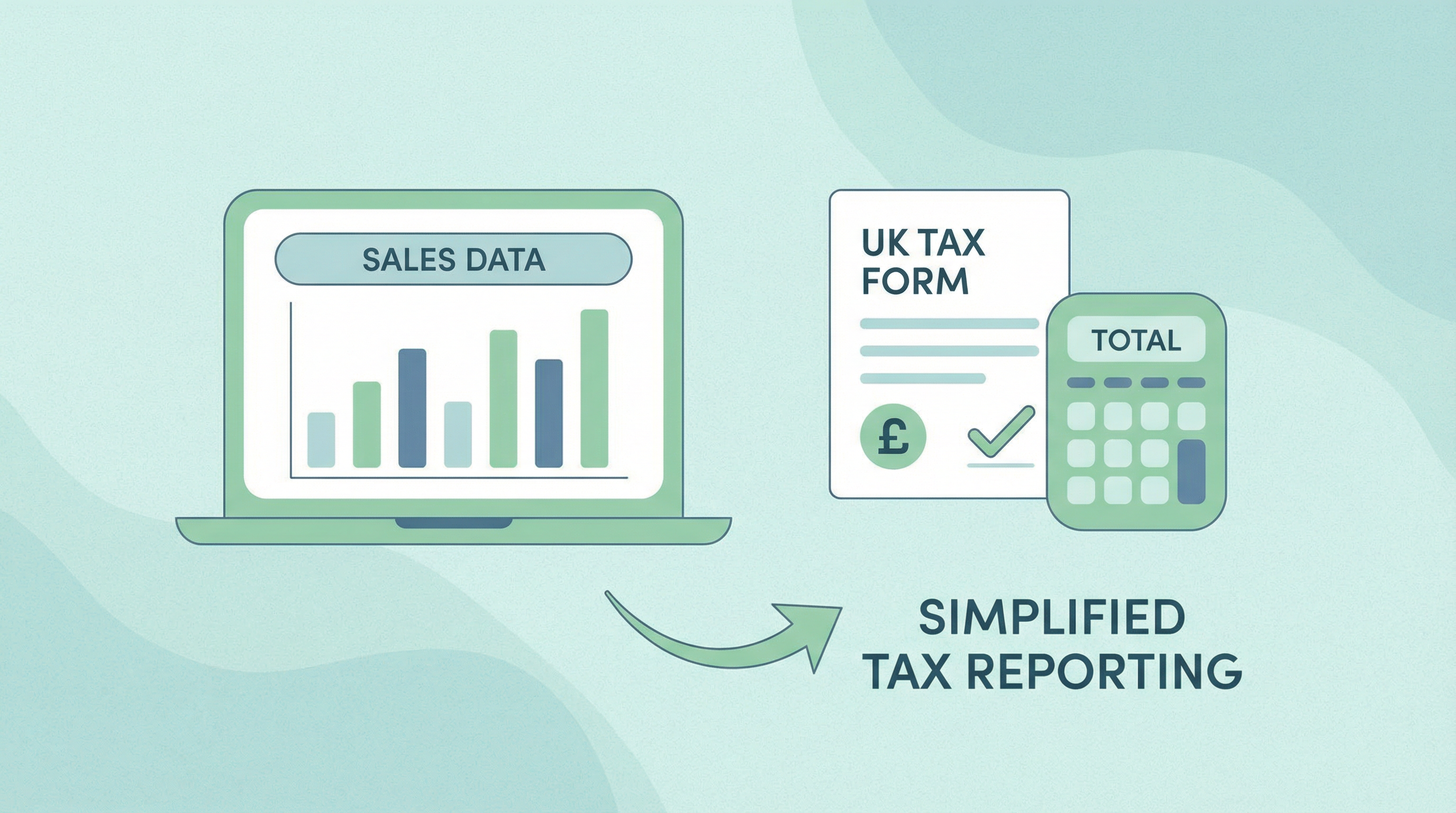Selling on Vinted as a Small Business: A Tax Guide
Legal Notice: Vinta.app is independent and not affiliated with Vinted; Vinted has not reviewed or approved this content; this material is for information only and does not constitute legal, tax, or accounting advice.

Selling on Vinted as a Small Business: A Tax Guide
Vinted isn't just a place to clear out your wardrobe; for many, it's a vibrant marketplace to run a small business, buying and selling pre-loved fashion and more. If you're treating your Vinted activities as a business venture, it's crucial to understand your UK tax responsibilities from the outset.
This guide will walk you through the essentials, helping you navigate when your Vinted hustle becomes a taxable business in the eyes of HM Revenue & Customs (HMRC) and what you need to do to stay compliant.
From Hobby to Business: When is Your Vinted Selling a Trade?
The key distinction HMRC makes is between casually selling personal, unwanted items and actively 'trading'. You're likely considered to be trading if you:
- Buy goods with the main intention of reselling them for a profit on Vinted.
- Make items yourself to sell.
- Sell frequently and operate in a way that looks like a typical business (e.g., high volume of sales, quick turnover).
The primary threshold to be aware of is the £1,000 trading allowance. If your total gross income (before deducting any expenses or Vinted fees) from these trading activities across Vinted and any other platforms exceeds £1,000 in a single tax year (6th April to 5th April), HMRC considers this a business that needs to be on their radar.
Key Tax Obligations for Your Vinted Business
Once your Vinted selling qualifies as a business, several tax obligations come into play:
1. Registering with HMRC
If your gross trading income is over £1,000, you typically need to register for Self Assessment with HMRC. For most small Vinted businesses, this means registering as a sole trader. The process is straightforward and can be done online via the GOV.UK website. As your business grows, you might consider forming a limited company, but sole trader status is the common starting point.
2. Keeping Accurate Records
This is non-negotiable for any business. You must keep detailed records of:
- All your Vinted sales income: This includes the amount the item sold for.
- Allowable business expenses: These reduce your taxable profit. Common expenses for Vinted sellers include:
- The cost of items you bought to resell
- Vinted fees
- Postage and packaging costs (if not fully covered by the buyer)
- Marketing or advertising costs (if any)
- Software subscriptions (like Vinta.app!) to help manage your business.
3. Filing Your Self Assessment Tax Return
As a registered sole trader, you'll need to file a Self Assessment tax return online each year. The deadline is typically 31st January following the end of the tax year. On this return, you'll declare your total income and deduct your allowable expenses to calculate your taxable profit.
Even if your profits are low or you make a loss, if your gross trading income was over £1,000, you still need to file a return.
4. Paying Income Tax and National Insurance
Your Vinted business profits (income minus allowable expenses) are subject to Income Tax if they exceed your annual tax-free Personal Allowance (currently £12,570 for the 2024/25 and 2025/26 tax years). You may also need to pay Class 2 and Class 4 National Insurance contributions, depending on your profit levels.
Vinted's Role: Platform Reporting
You might have heard that Vinted, along with other online marketplaces, now reports seller data to HMRC. This is part of a wider initiative to improve tax transparency. It's important to understand that Vinted isn't handling your tax obligations for you; they are simply providing data to HMRC, who may use it to ensure sellers are declaring the correct income. The responsibility for correct tax reporting remains firmly with you, the seller.
Streamline Your Vinted Business Finances with Vinta.app
Managing the financial side of a growing Vinted business can quickly become time-consuming. That's where Vinta.app steps in, offering a dedicated solution for Vinted sellers.
For your small Vinted business, Vinta.app helps by:
- Providing Clear Sales Tracking: Get an accurate, at-a-glance overview of your Vinted income. This is crucial for monitoring whether you're approaching or have exceeded the £1,000 trading allowance.
- Simplifying Order Management: Keep your business operations smooth and organised.
- Offering CSV Export for Tax Time: This is a game-changer. Vinta.app allows you to export your sales data into a CSV file, which can be directly used or easily adapted when filling out your Self Assessment tax return, or for providing to your accountant. This significantly reduces manual data entry and the risk of errors.
Using a tool like Vinta.app means less time spent on spreadsheets and more time focusing on sourcing and selling!
Conclusion: Sell Smart, Stay Compliant
Running a small business on Vinted can be a fantastic and profitable venture. By understanding when your selling activities become a taxable trade and staying on top of your record-keeping and HMRC reporting duties, you can operate with confidence. Being organised is not just good practice; it's key to ensuring tax compliance and peace of mind.
Ready to manage your Vinted small business like a pro?
Take the hassle out of tracking your sales and simplify your tax preparation.
➡️ Explore Vinta.app today and see how we can support your Vinted business!
Tags

George Jefferson
Vinted Pro Seller and founder of Vinta.app, sharing expert insights on professional Vinted selling, tax compliance, and scaling your online business.


